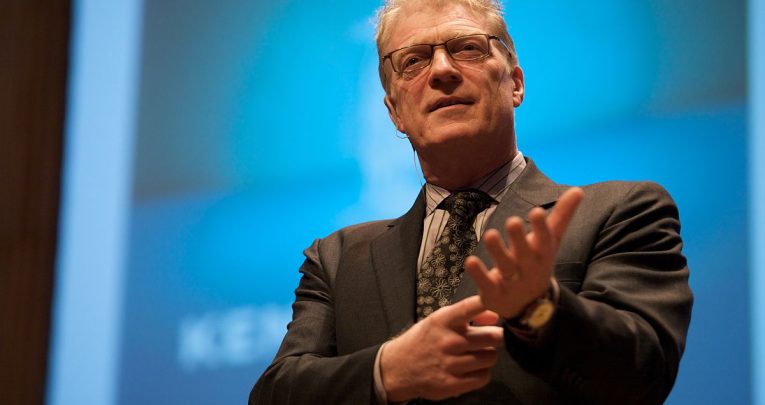Beware Ken Robinson’s ‘Creativity’ TED Talk – Children Need Both ‘Academic’ and ‘Artistic’ Subjects

The idea that innate talents and those who are not academically talented should not be forced to study an academic curriculum is the most worrying of Robinson’s ideas

- by Cara Bleiman

‘Who has made the most important impact on education?’ This is the very question being put to education big hitters such as Dr Joanna Williams, Tom Bennett and Martin Robinson at the Institute of Ideas Education Forum’s very first Xmas social event. If you want to hear them fight it out, entry is free – just turn up to the CIEE Global Institute in London (46-47 Russell Square, London WC1B 4JP), bring a bottle and be prepared to say who you think is the most important person in education.
To help get things warmed up, this week on Teachwire, members of the Education Forum committee will say who they think deserves the accolade. Today MFL teacher Cara Bleiman makes the case for Sir Ken Robinson – but not for the reasons you might think!
Before we go any further, I need to say clearly that I’m not a Ken Robinson fan.
Yes, I’ve been served multiple helpings of his charismatic TED talk “Do schools kill creativity?” during otherwise dreary staff meetings and I’ve chuckled gratefully along to his carefully selected anecdotes.
But behind the witty one-liners, I’m deeply wary of the implications of some of his ideas.
So, it’s not for the 48 million views of his 2006 talk or for the sheer number of times he uses the words ‘creativity’, ‘innovation’ and ‘inspiration’ in his general output which I’m nominating him as most important person in education.
For me, it’s as educational pin-cushion rather than pin-up that he deserves the top spot.
But before I get onto the worrying stuff, there’s a reason his ideas are so alluring to everyday teachers.
Robinson’s analysis of schools as killing creativity through standardised testing and a narrow focus on certain subjects deemed useful to industry and the economy is bang on.
It’s not just pupils who become strangers to inspiration in a system where the goal of education is reduced to test scores and measurable outcomes.
Secondly, he stands up for teaching as an art form, saying “It’s not a delivery system. I don’t know when we started confusing teaching with FedEx”.
At a time when teacher autonomy is pinched from every angle, Robinson’s ideas stoke a fire in many teachers’ hearts which makes them question the very purpose of education.
For this, I am grateful.
However, we need to take a closer look at some of his arguments.
Robinson claims that there is a global hierarchy of subjects – with maths at the top and art subjects like dance way down at the bottom.
He argues for more curriculum time for the arts and for schools to give an equal weighting to ‘creativity’ as we do to ‘literacy’.
As an MFL teacher struggling to make the most of my 30-minute weekly lesson in primaries, I can empathise with the music and PE teachers sitting on the fringe of the curriculum.
But our common enemy is not the idea of an academic curriculum in itself, but the tyranny of high-stakes testing.
In Ken Robinson’s view, children are born with innate talents and those who are not academically talented should not be forced to study an academic curriculum. This is how curiosity and creativity die, he warns. For me, this is the most worrying of Robinson’s ideas.
Regardless of children’s abilities and ‘talents’ (a dubious concept to say the least), all have a right to a good education and for that to happen, we cannot exclude academic subjects.
Whatever their background, particular interest (which of course, we can shape as passionate advocates of our subjects) or career aspiration, we must teach them the best that has been thought and said – and of course the arts are a key part of this.
And if we truly want to foster creativity, then immersion in subject disciplines, whether mathematics or dance is the only way.
So thanks, Sir Ken, for socking it to those seeking to instrumentalise education and narrow the curriculum, but in terms of fostering true creativity, let’s leave it to the subject experts.
Cara Bleiman has worked in inner-city London primary schools for the past 6 years as a class teacher, English subject leader and MFL coordinator. She now works as Mandarin primary specialist teacher for the Harris Federation.
Check back with us tomorrow when Harley Richardson pays tribute to the person he believes has had the biggest impact on English education. Hint: it’s not Sir Ken Robinson.
Main image credit: Sebastiaan ter Burg









